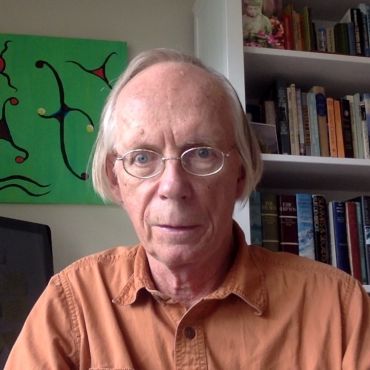
Image credit: University of Oxford Images / John Cairns Photography
Professor John Cardy awarded Breakthrough Prize in Fundamental Physics
Professor John Cardy, an Emeritus Fellow at All Souls College, University of Oxford, has today been named as joint winner of the 2024 Breakthrough Prize in Fundamental Physics. The prize recognises his profound contributions to statistical physics and quantum field theory, with diverse and far-reaching applications in different branches of physics and mathematics.
Now in their 12th year, the Breakthrough Prizes are renowned as the ‘Oscars of Science,’ and were founded by Sergey Brin, Priscilla Chan and Mark Zuckerberg, Julia and Yuri Milner, and Anne Wojcicki. The world’s largest science awards, each is worth $3 million and recognises the top scientists in the fields of Life Sciences, Fundamental Physics, and Mathematics.
This year’s Breakthrough Prize in Fundamental Physics was jointly awarded to Professor Cardy and Professor Alexander Zamolodchikov (Stony Brook University).
Speaking of his award, Professor Cardy said: ‘I am very happy that my contributions to physics and mathematics have been recognized in this way. I thank the Breakthrough Foundation for the award, the various institutions which supported me during this research, including All Souls College and the Department of Physics of the University of Oxford, and of course my wife for putting up with my endless doodling of equations on scraps of paper.’

Image credit: Professor John Cardy
Professor Cardy’s research focuses on statistical physics, a very broad set of theoretical ideas which describes any system with a large number of interacting objects distributed in space, be they ultracold atoms, the molecules in a gas, the atoms in a magnet, chemical reactants, or even ecological communities. In particular, he has investigated the phase transitions that can occur between different states of such a system, for example between a solid, liquid, or gas.
‘This prize is a wonderful tribute to John Cardy and his profound research, including the breakthroughs in statistical physics and quantum entanglement achieved in his more than 20 years at All Souls College.’
Professor Cardy said: ‘In the 1970s it was realized that such phenomena may be described mathematically by quantum field theories very similar to those used in elementary particle physics. Since my background was in the latter field, I was able, in the 1980s, to take this forward using what is known as 'conformal field theory', which exploits the special geometrical properties of these systems.’
As well as yielding exact predictions which have been tested in experiments and numerical simulations, this also led to new results in mathematics, which inspired the work of two Fields Medallists. More recently, Professor Cardy applied conformal field theory to a new area, for which he coined the term 'quantum quench'. This describes what happens to a many-body quantum system when some external control, such as a magnetic field, is suddenly changed. These predictions have been verified in a number of systems, including ultracold atoms.
Professor John Wheater , former Head of the Department of Physics and a long-time colleague of Professor Cardy, said: ‘John Cardy was one of the first theorists to realise the significance of new ideas in conformal field theory that emerged in the mid-1980s. Ever since he has been a leading figure in the subject and his name will be associated in perpetuity with many of its most important concepts. He has mentored generations of PhD students and young researchers who have themselves gone on to be major contributors. The award of the Breakthrough Prize is richly deserved.’
Full details about the Breakthrough Prize winners for this year can be found on the awards website.
 Expert Comment: Can Europe hold the line of liberal democracies?
Expert Comment: Can Europe hold the line of liberal democracies?
 Oxford launches first human aerosol TB challenge trial
Oxford launches first human aerosol TB challenge trial
 Rees Centre report reveals challenges faced by Black and Asian kinship carers
Rees Centre report reveals challenges faced by Black and Asian kinship carers
 Expert Comment: The Modern Slavery Act at 10 – what have we learnt for human rights?
Expert Comment: The Modern Slavery Act at 10 – what have we learnt for human rights?